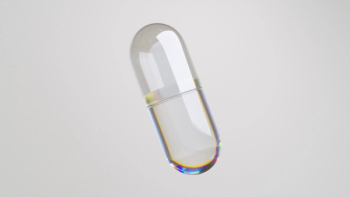
Sustained-Release Beta-Alanine Allows for Higher Dosing: SupplySide West Report
Natural Alternatives International’s new SR CarnoSyn allows for a high dose of beta-alanine to be released over several hours, thereby reducing the chance of off-putting paresthesia sensations.
Beta-alanine, an amino acid that contributes to the synthesis of muscle carnosine, has won favor among many athletes over the last decade thanks to its ability to help delay the onset of muscle fatigue and failure. But for more casual consumers, the chance of paresthesia, a tingling sensation that can accompany beta-alanine supplementation, may be a prohibitive factor dissuading them from using the ingredient.
With that in mind, Natural Alternatives International (NAI; San Marcos, CA) recently unveiled a new, sustained-release beta-alanine ingredient at the SupplySide West trade show. NAI’s new SR CarnoSyn offers a micro-encapsulated form of beta-alanine that gradually releases the ingredient over a period of 8–14 hours, allowing for a high dosage with a low likelihood of paresthesia.
Roger Harris, PhD, former professor of sport and exercise science at the University of Chichester, explained to Nutritional Outlook that beta-alanine should be taken in dosages around 6 grams to truly be effective. However, if taken all at once, many people will experience paresthesia, a prickly feeling that can be unpleasant, even if it’s harmless. That’s why SR CarnoSyn’s slow-release mechanism could be a game changer for consumers looking to effectively supplement with beta-alanine without experiencing paresthesia.
“With the slow release, you get a peak [dosage] around two hours [after supplementation], or maybe two and a half hours,” Harris explained. “You’re still at 80% of that peak at about four hours [after supplementation]. It’s declining very slowly.” Instant-release beta-alanine, by contrast, can peak in as little as 30 minutes and be nearly absent from the bloodstream in four hours.
With SR CarnoSyn allowing for sustained release of high-dose beta-alanine, NAI sees the opportunity to bring the ingredient to many consumers who may previously have been turned off by the accompanying paresthesia sensation, including vegetarians and seniors.
“We think the market is substantially larger than just the sports nutrition market,” said Mark LeDoux, chairman of the board and CEO of NAI. Vegetarians, for one, often have difficulty getting enough beta-alanine in the diet because it is generally found in certain types of meat and fish, LeDoux explained. And seniors dealing with issues of joint pain and muscle loss may also be a prime market for the ingredient.
When asked whether it would be challenging to market beta-alanine to a whole new group of consumers who may not be familiar with the ingredient, LeDoux was confident the research profile behind CarnoSyn-including recent studies on improved combat performance in military populations, improved mobility in nursing-home populations, and reduced incidence of concussive stress-make it a prime ingredient to bring to a broader audience.
“The first challenge we had was perfecting an ingredient we were comfortable putting our name on,” LeDoux said. “That took about three years. Now that that’s perfected, I’ve got a good team of people working on how do we message the market and where do we go.”
Read more:
Michael Crane
Associate Editor
Nutritional Outlook Magazine
Newsletter
From ingredient science to consumer trends, get the intel you need to stay competitive in the nutrition space—subscribe now to Nutritional Outlook.





